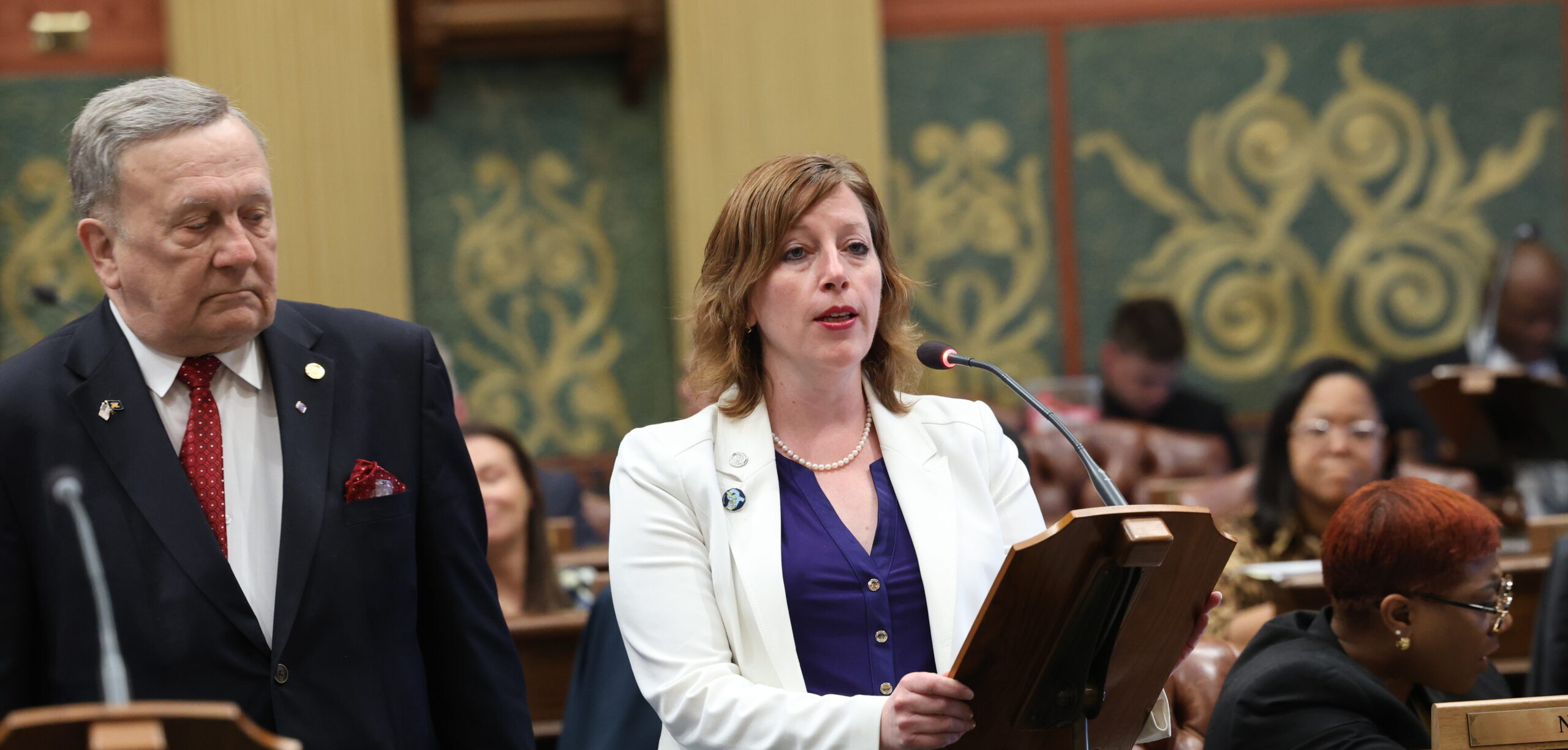Bills establish Michigan’s participation in the Occupational Therapy Licensure Compact

State Reps. Julie M. Rogers (D-Kalamazoo) speaks in support on HBs 4103 and 4104 on the House Floor at the Capitol in Lansing.
LANSING, Mich., May 13, 2025 — State Reps. Julie M. Rogers (D-Kalamazoo) and Doug Wozniak’s (D-Shelby Twp.) Occupational Therapy Licensure Compact legislation, House Bills 4103 and 4104, passed the Michigan House of Representatives today with wide bipartisan support. These bills would allow Michigan to join the interstate Occupational Therapy Licensure Compact, enabling licensed occupational therapists and occupational therapy assistants from member states to practice across state lines more easily.
“Today marks an important victory for patient access and for the thousands of Michigan residents who depend on occupational therapy services,” Rogers said. “As a practicing health care provider, I’m proud that Michigan is not only expanding access to essential care, but is also empowering our licensed professionals to serve patients more efficiently and effectively by cutting government red tape. Additionally, interstate compacts support our military families by increasing portability of licenses.”
This compact will help address provider shortages, improve access in border regions, and support licensure portability for military families. HB 4103, sponsored by Rogers, would allow Michigan’s participation in the compact and provides for the state’s membership in the Occupational Therapy Compact Commission. HB 4104, sponsored by Wozniak, authorizes licensed occupational therapists in Michigan to access the benefits of the compact.
“The adoption of this Compact is a strong step forward for the economic vitality of the Great Lakes and Midwest region. By reducing barriers to professional licensure, particularly for occupations like Occupational Therapy, it enables qualified professionals to more easily live and work across state lines. This increased mobility not only fosters greater economic activity in the region, but also makes it more attractive for professionals to establish long-term roots,” Wozniak said.
“Michigan OTs are so proud to have the Michigan House continue to lead the way and provide an avenue for licensed occupational therapists practice seamlessly across state borders. This action today leads us ever closer to helping to retain our younger OTs in our state,” said Dr. Denise Hoffman, D.OT, chair of the MI Occupational Therapy Association’s Advocacy Committee
###

